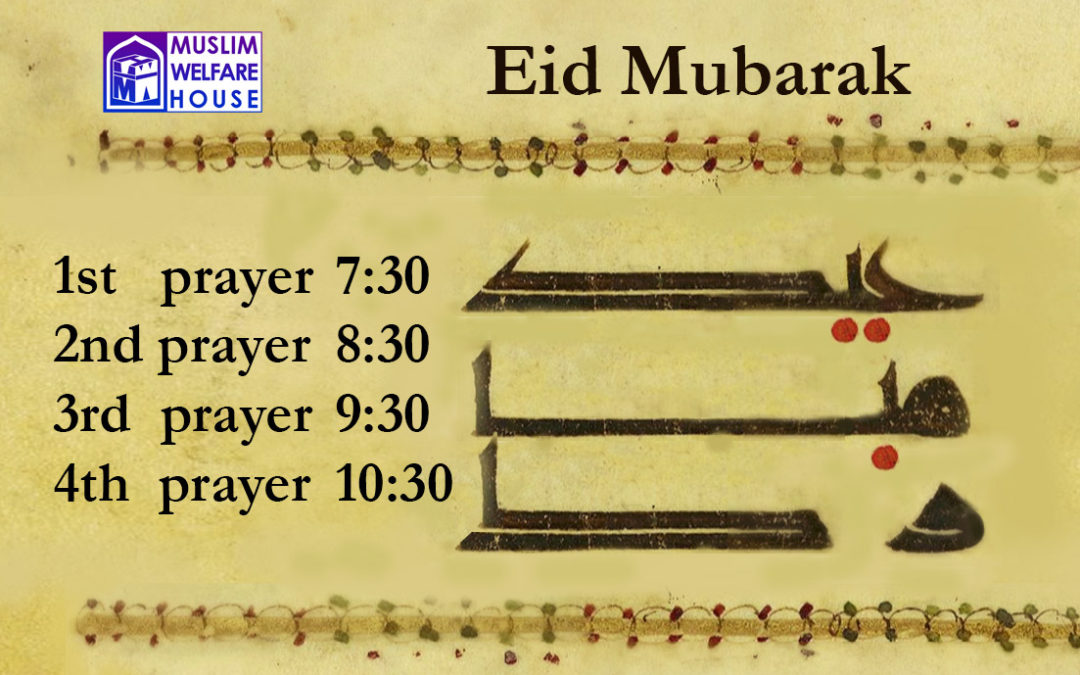


He should then make one more takbeer and go into ruku.ģ. Thereafter, he should make three takbeers but after the third takbeer he should not tie his hands but leave them at his sides. In the second rakaat, he should first recite Surah Faatihah and another Surah. Thereafter, he should make his ruku and sajdahs and stand up as he normally does. He should then read the ta’awwudh and bismillah, Surah Faatihah and another Surah. After the third takbeer, he should not rest his hands but tie them. In-between each takbeer, he should pause to such an extent that he can read Sub’haanallah three times. After making the takbeer, he should let his hands rest at his sides. Each time that he says Allahu Akbar, he should raise his hands to his ears just as he does for the takbeer-e-tahreemah. He must recite the thanaa’ and then say Allahu Akbar three times. The method of offering Eid ul-Fitr prayer is as follows: the following intention should be made: “I intend offering two rakaats necessary (wajib) of Eid ul-Fitr prayer with six necessary (wajib) takbeers.” After making this intention, he should commence his prayer. (xiii) To read the following takbeer softly while walking towards the Eid prayer place:Ģ. (xii) To go to the Eid prayer place on foot. (xi) To return from the Eid prayer place taking a route that is different from the one that he had taken when going towards the Eid prayer place.

That is, one should not offer Eid prayer in the masjid without any valid reason. (x) To offer the Eid prayer in the Eid prayer place. (ix) To give the sadaqatul fitr before going to the Eid prayer place. (viii) To eat something sweet, such as dates, before going to the Eid prayer place. (vii) To go early to the Eid prayer place. (vi) To wake up very early in the morning. (iv) To wear the best of clothing which one possesses.

(i) To adorn oneself according to the Shariah. Thirteen things are sunnah on the day of Eid ul-Fitr: while the khutbah is being delivered, it is haraam to talk, walk about or offer prayer. However, listening to the khutbah of Eid is necessary (wajib) just as it is necessary (wajib) for the khutbah of Friday, i.e. Furthermore, the Friday khutbah is delivered before the prayer while for the Eid prayers, the khutbah is delivered after the prayer. With the exception that for the Friday prayer the khutbah is a prerequisite and fard, while for the Eid prayers it is not fard but sunnah. The prerequisites and conditions that have been mentioned for the validity and compulsion for Friday, apply for the Eid prayer as well. On both these days it is necessary (wajib) to offer two rakaats of prayer as a form of gratitude. Both these days are days of festivity and celebration in Islam. The first of Shawwaal is known as Eid ul-Fitr, and the tenth of Zil Hijjah is known as Eid ul-Ad’haa. From Heavenly Ornaments of Imam Ashraf al-Tahanawiġ.


 0 kommentar(er)
0 kommentar(er)
